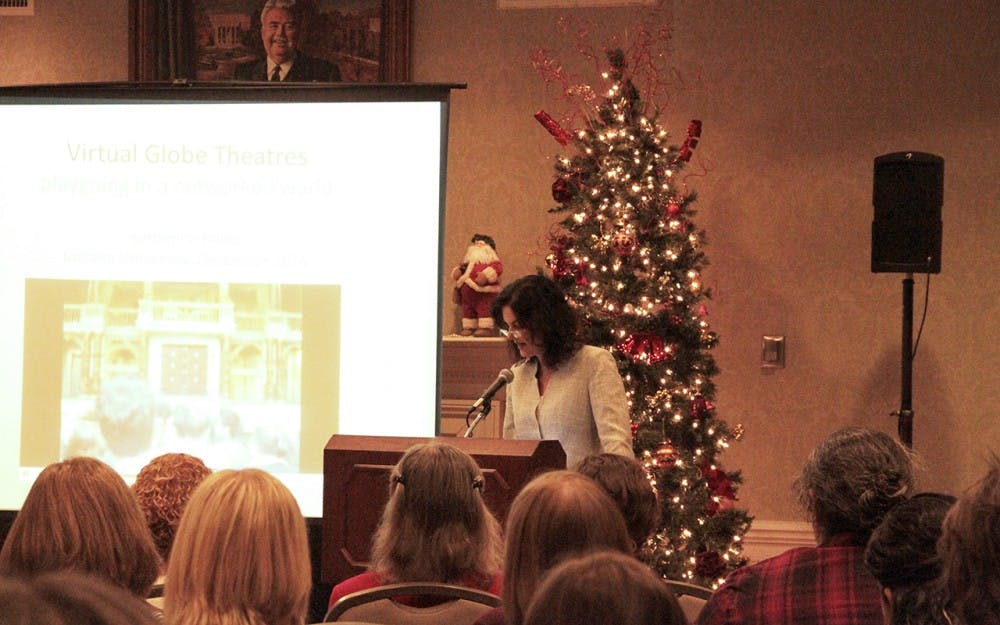A green square human moved around the screen, piecing together blocks to construct pillars and ceilings. In the video game Minecraft, the player builds their own environment, which could mean the Globe Theatre, the showcase for Shakespearean plays.
Katherine Rowe, Smith College Provost and Dean of Faculty, explained patterns in the digital world, from social media to gaming, imitate playgoing and theater-going from Shakespeare’s time in a way that sheds light on how to appreciate literature on a digital age. Rowe spoke Monday night as part of the Wertheim Lecture series by the Department of Comparative Literature.
“By taking imaginative phase one step further, she builds the theater itself,” Rowe said on the player building the game.
In these sandbox games, in which a player builds and interacts with environments themselves, players can explore literature and culture in a virtual realm.
“It reflects the idea that a player’s ability to modify the environment is a key source of enjoyment,” Rowe said.
Similar to a verse in Shakespeare’s “Henry V” describing the theater as a place to ask playgoers to imagine and find meaning, players in video games invent environments for themselves, Rowe said.
“The Globe demands actors get over our fear of the audience,” Rowe said. “It gives the audience a power.”
Scholars can study these interactions to understand the role of theater and playgoing in today’s digital, connected age, Rowe said.
Reproductions of the levels of Hell from Dante’s “The Inferno” and other settings in literature using the video games “Second Life” and “The Sims” demonstrate these interactions, Rowe said.
“Katherine Rowe wants to understand relationship between playgoing and play in networked world,” said Rosemarie McGerr, professor of comparative literature.
Remediation, or representation of one medium in another in a way that positions them both differently, Rowe said people can understand patterns between playgoing from Shakespeare to Minecraft.
“With the Globe Theatre of ‘Second life,’ there’s no playgoing except by consent of given audience,” Rowe said.
Players make these decisions in video games, Rowe said, and distinctive architecture and repeating themes share a collective experience.
“This is why it might be valuable to share that sense of collective or audience experience that those of us posting and playing online are part of,” Rowe said.
Teaching people to recognize critical thinking and creative intelligence in unfamiliar modality and sights, Rowe said, scholars can understand these realms.
“Critical game studies is a blossoming field and rich array of studies,” Rowe said.
Sonia Velázquez, assistant professor of religious studies, and Rowe both raised objections of how closely these experiences imitate real life.
Interactions in online games could possibly be very different from how people behave in the real world, the professors said.
But the similarities in behavior between games and real life could mean there’s more to understand from these literary experiences, Rowe said.
“These games validate work of imaginative ones authentic honorable socially valuable labor,” Rowe said. “Mental work is as legitimate as the tangible kind.”




